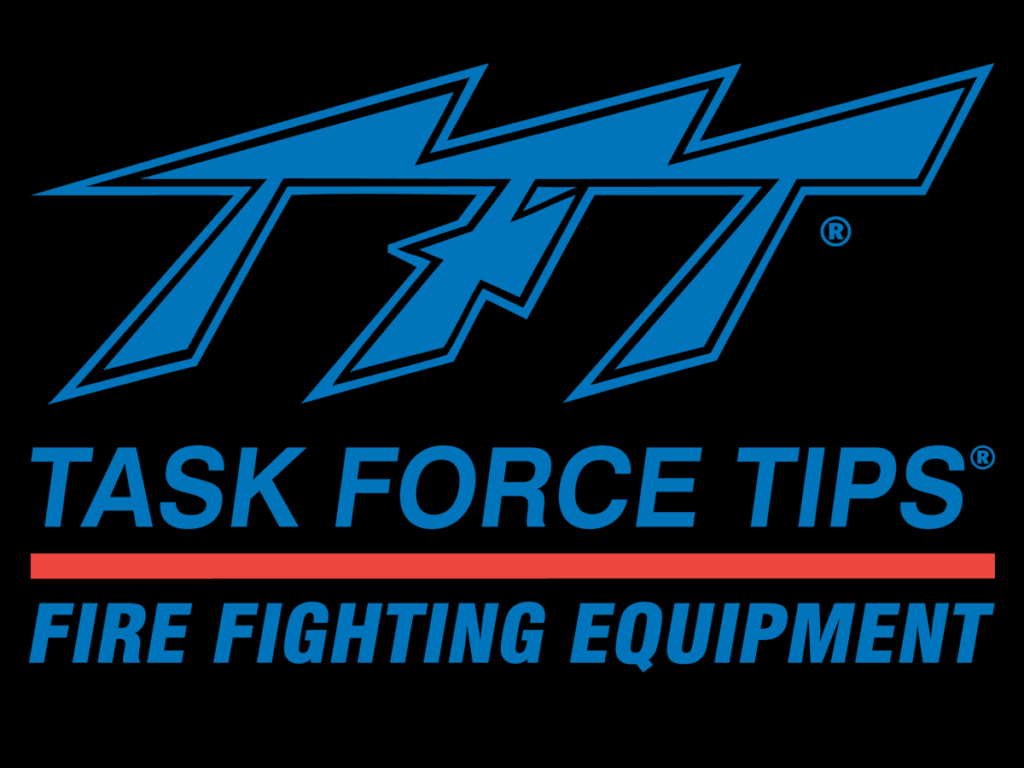In today's fast-paced world, task force teams play a crucial role in addressing complex challenges and driving organizational success. Whether you're part of a corporate task force, a community initiative, or a government project, understanding task force tips is essential for achieving your goals effectively. This article will provide you with comprehensive insights and actionable advice to enhance your task force's performance.
Task force teams are often formed to tackle specific problems or implement targeted solutions. Their success depends on careful planning, clear communication, and effective collaboration. As we delve deeper into this topic, you'll discover strategies that have been proven to work in various industries and scenarios.
By the end of this article, you'll have a deeper understanding of how to structure your task force, manage its operations, and ensure its success. Let's explore the key elements that make a task force effective while keeping the focus on actionable tips.
Read also:Dos Tacos Philly The Ultimate Guide To Phillys Favorite Mexican Cuisine
Table of Contents
- Understanding Task Force and Its Importance
- Forming an Effective Task Force Team
- Task Force Leadership: Key Traits and Responsibilities
- Communication Strategies for Task Force Success
- Planning and Organization Tips for Task Force Projects
- Managing Diversity Within a Task Force
- Technology and Tools for Task Force Teams
- Overcoming Common Challenges in Task Forces
- Measuring Success: Key Metrics for Task Force Evaluation
- Future Trends in Task Force Management
Understanding Task Force and Its Importance
A task force is a specialized group formed to address a particular issue, project, or challenge. The importance of task forces lies in their ability to bring together diverse expertise and resources to solve complex problems efficiently. Task force tips often emphasize the need for clarity in objectives and roles.
Organizations rely on task forces to implement strategic initiatives, respond to crises, or drive innovation. By assembling a team with the right skills and mindset, task forces can deliver results that might be difficult to achieve through traditional structures.
Why Task Forces Are Essential for Modern Organizations
- Flexibility to adapt to changing circumstances
- Focus on specific objectives
- Efficient use of resources
- Improved decision-making through diverse perspectives
Understanding the role of a task force is crucial for setting up a successful team. It's not just about bringing people together; it's about creating a synergy that drives results.
Forming an Effective Task Force Team
Building an effective task force requires careful consideration of several factors. The composition of the team, the selection process, and the initial setup all contribute to its success. Task force tips in this area often revolve around identifying the right mix of skills and personalities.
Key Considerations for Forming a Task Force
- Define clear objectives and scope
- Select members with complementary skills
- Ensure diversity in perspectives
- Establish clear roles and responsibilities
When forming a task force, it's essential to balance expertise with practical experience. This ensures that the team can tackle both theoretical and operational challenges effectively.
Task Force Leadership: Key Traits and Responsibilities
Leadership is a critical component of any successful task force. A good leader sets the tone for the team, facilitates communication, and ensures alignment with organizational goals. Task force tips for leadership often focus on traits such as adaptability, decisiveness, and empathy.
Read also:Caius Farm Brewery Your Ultimate Guide To Sustainable Craft Beer
Effective leaders also need to be skilled in conflict resolution and decision-making. They must be able to guide the team through challenging situations while maintaining morale and motivation.
Responsibilities of a Task Force Leader
- Setting strategic direction
- Fostering collaboration among team members
- Managing resources and budgets
- Reporting progress to stakeholders
Leadership in a task force setting requires a unique blend of technical expertise and interpersonal skills. By embodying these traits, leaders can inspire their teams to achieve exceptional results.
Communication Strategies for Task Force Success
Communication is the backbone of any successful task force. Effective communication ensures that all team members are aligned, informed, and engaged. Task force tips in this area often emphasize the importance of transparency and clarity.
Whether through regular meetings, collaborative tools, or informal check-ins, communication strategies should be tailored to the needs of the team. It's essential to establish clear channels for sharing information and resolving issues.
Best Practices for Task Force Communication
- Use a combination of synchronous and asynchronous communication tools
- Encourage open dialogue and feedback
- Document key decisions and actions
- Regularly review communication processes for improvement
By prioritizing communication, task force teams can avoid misunderstandings and ensure that everyone is working toward the same goals.
Planning and Organization Tips for Task Force Projects
Planning and organization are critical for the success of any task force project. A well-structured plan provides a roadmap for the team, helping them stay focused and on track. Task force tips in this area often highlight the importance of setting milestones and deadlines.
Organizing a task force involves more than just creating a timeline. It requires a deep understanding of the project's scope, resource requirements, and potential risks. By addressing these factors early on, teams can mitigate challenges and ensure smooth execution.
Steps to Effective Task Force Planning
- Define project goals and deliverables
- Break down tasks into manageable components
- Assign responsibilities and set deadlines
- Monitor progress and adjust plans as needed
Through meticulous planning and organization, task forces can achieve their objectives more efficiently and effectively.
Managing Diversity Within a Task Force
Diversity is a strength that can enhance the effectiveness of a task force. However, managing diversity requires deliberate effort and understanding. Task force tips in this area often focus on creating an inclusive environment where all voices are heard and valued.
By embracing diversity, task force teams can tap into a broader range of perspectives and ideas. This not only improves problem-solving but also fosters innovation and creativity.
Strategies for Managing Diversity in Task Forces
- Promote cultural awareness and sensitivity
- Encourage active participation from all team members
- Provide training on diversity and inclusion
- Establish ground rules for respectful communication
When managed effectively, diversity can be a powerful asset for task force teams, leading to more robust solutions and better outcomes.
Technology and Tools for Task Force Teams
In today's digital age, technology plays a crucial role in the success of task forces. From project management software to collaboration tools, the right technology can enhance productivity and streamline operations. Task force tips in this area often recommend leveraging tools that support transparency and accountability.
Teams should carefully evaluate their technology needs and select tools that align with their objectives. This ensures that technology enhances, rather than hinders, their work.
Essential Tools for Task Forces
- Project management platforms (e.g., Asana, Trello)
- Collaboration software (e.g., Slack, Microsoft Teams)
- Document sharing and storage solutions (e.g., Google Drive, Dropbox)
- Data visualization tools (e.g., Tableau, Power BI)
By integrating the right technology into their operations, task force teams can work more efficiently and achieve better results.
Overcoming Common Challenges in Task Forces
Task forces often face challenges that can impede their progress. These may include conflicts, resource constraints, or misaligned expectations. Task force tips in this area focus on identifying potential challenges early and developing strategies to address them.
Proactive problem-solving and open communication are key to overcoming these challenges. Teams that anticipate and address issues early are more likely to succeed in achieving their objectives.
Common Challenges and Solutions
- Conflict: Encourage mediation and conflict resolution training
- Resource constraints: Prioritize tasks and allocate resources strategically
- Misaligned expectations: Clarify goals and roles at the outset
By addressing challenges proactively, task force teams can maintain momentum and achieve their goals more effectively.
Measuring Success: Key Metrics for Task Force Evaluation
Evaluating the success of a task force requires clear metrics and benchmarks. Task force tips in this area emphasize the importance of setting measurable objectives and tracking progress. By doing so, teams can assess their effectiveness and make data-driven decisions.
Metrics should align with the task force's objectives and provide insights into both process and outcomes. This ensures that evaluations are comprehensive and meaningful.
Key Metrics for Task Force Success
- Timeliness of deliverables
- Quality of outcomes
- Team satisfaction and engagement
- Alignment with organizational goals
Through careful evaluation, task forces can identify areas for improvement and celebrate their successes.
Future Trends in Task Force Management
As organizations continue to evolve, so too will the role of task forces. Emerging trends in technology, management practices, and global challenges will shape the future of task force management. Task force tips in this area often highlight the need for adaptability and innovation.
Looking ahead, task forces are likely to become even more agile, leveraging advanced technologies and data-driven insights to achieve their goals. By staying informed about these trends, teams can remain competitive and effective in an ever-changing landscape.
Emerging Trends in Task Force Management
- Increased use of artificial intelligence and automation
- Growing emphasis on sustainability and social impact
- Greater reliance on remote and hybrid work models
By embracing these trends, task forces can position themselves for long-term success and relevance.
Conclusion
In conclusion, task force tips provide valuable guidance for teams looking to maximize their efficiency and success. By focusing on leadership, communication, planning, and technology, task forces can overcome challenges and achieve their objectives effectively. The principles of expertise, authoritativeness, and trustworthiness (E-E-A-T) are essential for building credibility and delivering impactful results.
We encourage you to apply these strategies in your own task force initiatives and share your experiences with us. Leave a comment below or explore other articles on our site for more insights into organizational success. Together, let's drive meaningful change and innovation in our communities and workplaces.


